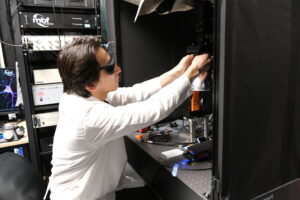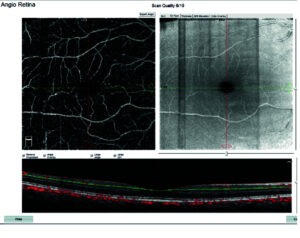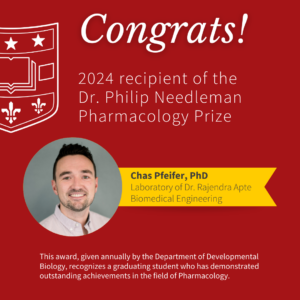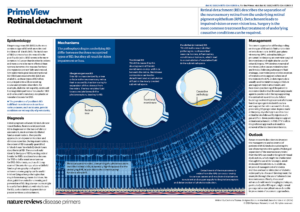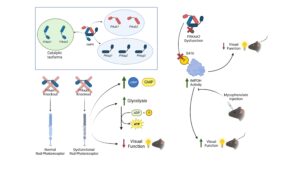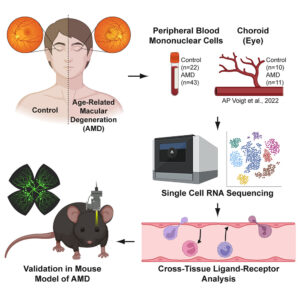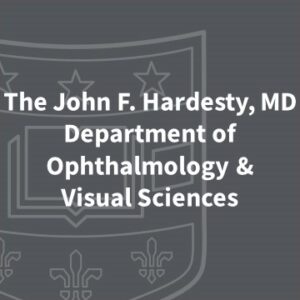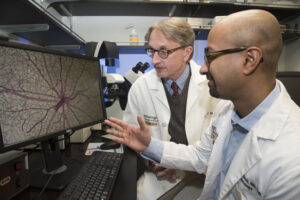Ophthalmologist Rajendra S. Apte, MD, PhD, (right), of Washington University School of Medicine in St. Louis, examines patient Patricia Collins (left) while medical student Wilson Wang observes. Collins is a participant in a clinical trial that tests the safety and efficacy of an FDA-approved drug in stabilizing vision in patients with RVCL-S, a rare genetic […]
Repurposed drug may help stabilize vision in rare disease (Links to an external site)

